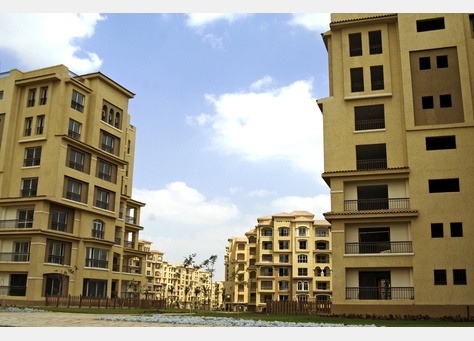Exports are one of the key drivers of economic growth as well as an important part of a countries’ GDP, in addition to the important role they play in international trade.
Accordingly, governments encourage exports because they increase employment opportunities and raise average wages and, consequently, the standard of living of the population. Exports also raise foreign exchange reserves.
In late July 2021, President Abdel Fattah Al-Sisi stressed the need to focus on industry as a factor of development that must be managed in a disciplined manner.
“I hope that the volume of Egyptian exports will reach about $100bn within three years,” Al-Sisi said, noting that this matter will only come about by paying attention to industry and its components.
A statement by the Egyptian Cabinet revealed that in light of the targeted growth rates in the export sectors and assuming that global demand continues to grow by 10%, it is targeted to increase the value of Egyptian exports in 2022 to reach $40bn, with a growth rate of 25%.
Minister of Trade and Industry Nevine Gamea announced recently that Egyptian exports achieved positive indicators in 2021. The total value of Egyptian exports to foreign markets recorded $32.1bn, up from the $25.4bn recorded in 2020 — an increase of 26%.
Gamea said that this value proves the ability of export sectors to deal with the global crisis imposed by the coronavirus pandemic besides challenges that the global economy faces, which in turn affects the Egyptian economy, including high inflation and freight rates.
The minister added that President Al-Sisi ordered the restructuring of the Supreme Council for Export to be under the chairmanship of the president of the republic, with memberships extended to the prime minister, the governor of the Central Bank of Egypt, and a number of other ministers.
Khaled Abu Al-Makarem, the Chairperson of the Chemical and Fertilisers Export Council, said that reaching $100bn in Egyptian exports is contingent on hard work, breaking into new markets, and pumping more investments to increase production capacities.
He added that reaching an annual export growth rate of more than 20% annually requires increasing production capacities and directing more investments, noting that many industrial companies have announced plans to expand production during the coming period as well as expanding exports by breaking into new markets and participating in marketing missions abroad.
For her part, Head of the Apparel Export Council of Egypt Marie Louise said that the council has an ambitious plan to participate in boosting Egyptian exports of garments by organising several events, exhibitions, and conferences in the current year to facilitate the export process and solve any problems that may hinder manufacturers and exporters in the ready-made garment sector.
Louise elaborated that the Egyptian state has a clear keenness in making decisions to support investors based on labour-intensive industrial projects in the ready-made garment sector, adding that state agencies concerned with the matter are intensifying efforts to overcome all obstacles facing exports.
Meanwhile, Chairman of Egyptian Exporters Association Expolink Khaled Al-Mikati said that to reach the threshold of $100bn in Egyptian exports, it is necessary to open new markets abroad and increase Egyptian exporters’ base as well as train factory workers, foster cooperation among all industry stakeholders, and acquire financing from banks.
He added that the Expolink aims to expand the export of Egyptian garments to African countries, especially brands, in light of the presence of Egyptian factories capable of exporting high quality brand clothing.
Sherif Al-Sayyad, the Chairperson of the Engineering Export Council of Egypt (EEC), stated that the cost reduction of production is one of the most important pillars to boost engineering exports and achieve unprecedented targets as well as removing customs on components and production requirements.
This will increase the competitiveness of the final product’s price in international markets.
Furthermore, Al-Sayyad stressed the need to deepen the local manufacturing of main components in the production process, pointing out the importance of having incentive packages to attract foreign investors to manufacture strategic and main components that have no local alternative.




